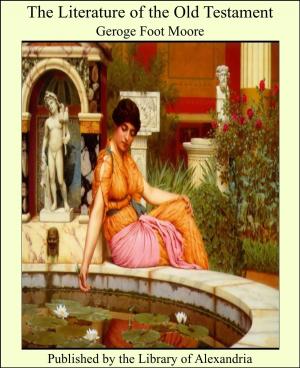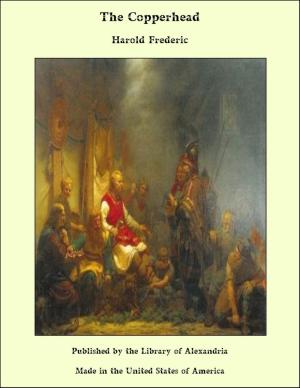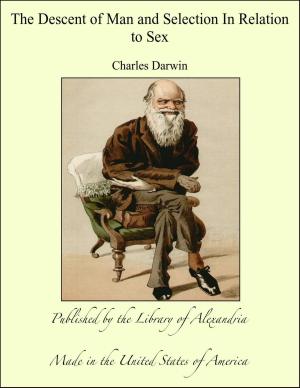| Author: | Hamilton Drummond | ISBN: | 9781465559111 |
| Publisher: | Library of Alexandria | Publication: | July 29, 2009 |
| Imprint: | Library of Alexandria | Language: | English |
| Author: | Hamilton Drummond |
| ISBN: | 9781465559111 |
| Publisher: | Library of Alexandria |
| Publication: | July 29, 2009 |
| Imprint: | Library of Alexandria |
| Language: | English |
THE DESPATCH All morning the King had been restless, unappeasable, captious, with little relapses unto the immobility of deep thought, and those who knew him best were probing deeply both their conscience and their conduct. Had he sat aloof, quiet in the sunshine, his dogs sleeping at his feet, his eyes half closed, his hands, waxen, almost transparent, and bird's claws for thinness, spread out to the heat, those about him would have gone their rounds with a light heart. At such times his schemes were thoughts afar off, dreams of some new, subtle stroke of policy, and none within touch had cause to fear. But this May day he was restless, unsettled, his mind so full of an active purpose shortly to be fulfilled that he could not keep his tired body quiet for long, but every few minutes shifted his position or his place. If he sat in his great chair, padded with down to ease his weakness and the aching of his bones, his fingers were constantly plucking at his laces, or playing with the tags which fastened the fur-lined scarlet cloak he wore for a double purpose, to comfort the coldness of his meagre body, and that the death-like pallor of his face might be touched by its gay brightness to a reflected, fictitious glow of health. But to remain seated for any length of time jarred with his mood. Pushing himself to his feet he would walk the length of the gallery and back again, leaning heavily upon his stick, only to sink once more into his chair and fumble anew with shaking hands at whatever loose end or edge lay nearest. So it had been all morning, but the restlessness had redoubled within the last half-hour. It was then that a post had reached Valmy, no man knew from whence, nor had the messenger been asked any questions. The superscription on the despatch was a warning against the vice of curiosity. It was in the King's familiar handwriting, bold and angular, and ran, "To His Majesty the King of France, At his Château of Valmy, These in great haste." A "Louis" in large letters was sprawled across the lower corner of the cover. But though none asked questions it was noted that the horse was fresher than the man, and that whereas the one was streaming in a lather of sweat which had neither set nor dried, the other was splashed, caked, and powdered with mud and dust to the eyebrows: therefore the wise in such matters deduced that short relays had been provided, but that the rider had only halted long enough to climb from saddle to saddle. In silence he handed his letter to the Captain of the Guard, together with the King's signet, and in silence he rode away; but whereas he came at a gallop he rode away at a slow walk: therefore the wise further deduced that his task was ended
THE DESPATCH All morning the King had been restless, unappeasable, captious, with little relapses unto the immobility of deep thought, and those who knew him best were probing deeply both their conscience and their conduct. Had he sat aloof, quiet in the sunshine, his dogs sleeping at his feet, his eyes half closed, his hands, waxen, almost transparent, and bird's claws for thinness, spread out to the heat, those about him would have gone their rounds with a light heart. At such times his schemes were thoughts afar off, dreams of some new, subtle stroke of policy, and none within touch had cause to fear. But this May day he was restless, unsettled, his mind so full of an active purpose shortly to be fulfilled that he could not keep his tired body quiet for long, but every few minutes shifted his position or his place. If he sat in his great chair, padded with down to ease his weakness and the aching of his bones, his fingers were constantly plucking at his laces, or playing with the tags which fastened the fur-lined scarlet cloak he wore for a double purpose, to comfort the coldness of his meagre body, and that the death-like pallor of his face might be touched by its gay brightness to a reflected, fictitious glow of health. But to remain seated for any length of time jarred with his mood. Pushing himself to his feet he would walk the length of the gallery and back again, leaning heavily upon his stick, only to sink once more into his chair and fumble anew with shaking hands at whatever loose end or edge lay nearest. So it had been all morning, but the restlessness had redoubled within the last half-hour. It was then that a post had reached Valmy, no man knew from whence, nor had the messenger been asked any questions. The superscription on the despatch was a warning against the vice of curiosity. It was in the King's familiar handwriting, bold and angular, and ran, "To His Majesty the King of France, At his Château of Valmy, These in great haste." A "Louis" in large letters was sprawled across the lower corner of the cover. But though none asked questions it was noted that the horse was fresher than the man, and that whereas the one was streaming in a lather of sweat which had neither set nor dried, the other was splashed, caked, and powdered with mud and dust to the eyebrows: therefore the wise in such matters deduced that short relays had been provided, but that the rider had only halted long enough to climb from saddle to saddle. In silence he handed his letter to the Captain of the Guard, together with the King's signet, and in silence he rode away; but whereas he came at a gallop he rode away at a slow walk: therefore the wise further deduced that his task was ended















